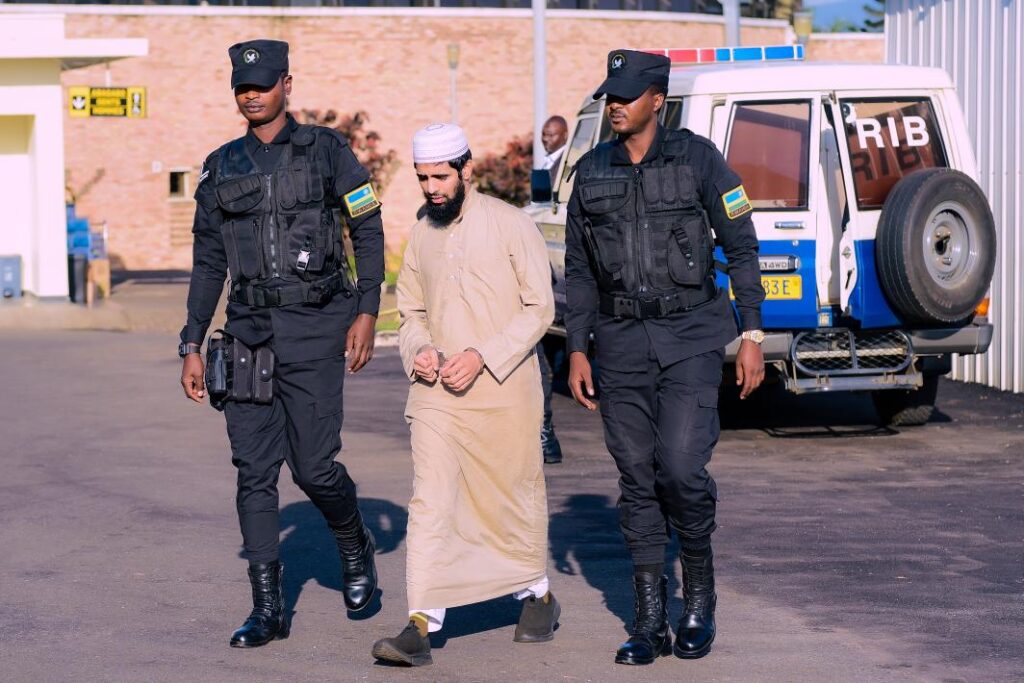In a significant victory for India’s counter-terrorism efforts, the most-wanted terrorist Salman Khan, associated with the Lashkar-e-Taiba (LeT), has been arrested in Rwanda. This development not only showcases India’s diplomatic and investigative prowess but also serves as a lesson to countries like the USA and Canada on maintaining a zero-tolerance policy toward terrorism.
In the framework of international cooperation in fighting cross-border crime, today, 27th Nov 2024, Rwanda has extradited Mr. Salman KHAN alias Salma (30 years) wanted by the Government of India for his association with a Terrorist group operating on its territory.
The suspect… pic.twitter.com/9WYbVtUMMR
— Rwanda Investigation Bureau (@RIB_Rw) November 27, 2024
Arrest in Rwanda: A Strategic Triumph
Salman Khan, a 40-year-old operative of the Pakistan-based Lashkar-e-Taiba, was instrumental in financing terrorism, radicalizing individuals, and orchestrating attacks on India. Despite being pursued by agencies like the CBI and NIA for years, Khan evaded capture by hiding across various countries, particularly in Africa. His arrest in Rwanda’s capital, Kigali, marks the culmination of a relentless pursuit by Indian authorities.
JUST IN
Rwanda has extradited Salman Khan to India, where he will face prosecution for terrorism and related crimes. The transfer occurred this morning at Kigali International Airport.#RBANews pic.twitter.com/Gp6iQgfAZs
— Rwanda Broadcasting Agency (RBA) (@rbarwanda) November 27, 2024
Khan was reportedly running a small shop in Kigali, which served as a front for his illegal activities. Armed with compelling evidence, India convinced Rwanda of Khan’s involvement in terrorism, resulting in his arrest. Rwanda, despite not having an extradition treaty with India, extradited Khan citing their commitment to not becoming a safe haven for criminals.
Diplomatic Ties Paying Off
India’s ability to secure Khan’s extradition from Rwanda highlights the significance of strong bilateral relationships. Prime Minister Narendra Modi’s historic visit to Rwanda in 2018 laid the groundwork for this cooperation. During the visit, Modi gifted 200 cows as part of a goodwill gesture under the “Girinka” program, symbolizing India’s commitment to fostering ties with Rwanda.
A glimpse of rural Rwanda…President @PaulKagame and PM @narendramodi visited the Rweru Model Village earlier today. pic.twitter.com/eC1cfKONye
— PMO India (@PMOIndia) July 24, 2018
The extradition of Khan underscores Rwanda’s stance on terrorism. The Rwandan government declared, “Rwanda cannot be a safe haven for criminals,” a position that starkly contrasts with the perceived leniency of some Western nations like Canada and the USA, which have faced criticism for harboring individuals accused of terrorism.
Visited the Kigali Genocide Memorial.
The path of peace and brotherhood embraced by Rwanda after the unfortunate genocide of 1994 is commendable. pic.twitter.com/EOQEXEztCL
— Narendra Modi (@narendramodi) July 24, 2018
Lessons for the West
India has long urged countries like the USA and Canada to extradite wanted individuals involved in terrorism and separatist activities. Despite presenting robust evidence against such individuals, these nations often cite legal or political constraints, leading to strained bilateral ties. Rwanda’s swift action demonstrates that a firm stand against terrorism is not only possible but necessary for global security.
Also Read: India Seeks Extradition of Khalistani Terrorist Arsh Dalla
Implications of the Arrest
With Salman Khan in custody, Indian agencies are poised to gather critical intelligence regarding Lashkar-e-Taiba’s operations, future plans, and strategies. This information is expected to bolster India’s counter-terrorism framework and aid in preventing future attacks.
A Broader Perspective
This case is a reminder of Africa’s growing importance in global geopolitics. Countries like Rwanda and Nigeria are emerging as key allies for nations like India. It also serves as a wake-up call for addressing biases and stereotypes about African nations, many of which have demonstrated a genuine commitment to combating terrorism.
Disclaimer
This article is for informational purposes only and is based on publicly available data and reports. It does not intend to defame or misrepresent any individual, organization, or nation. The views expressed are those of the author and do not necessarily reflect those of any affiliated entities.
Also Read: Pakistan Demand Cricket With India While Harboring Terrorists like Lakhvi
Follow US

